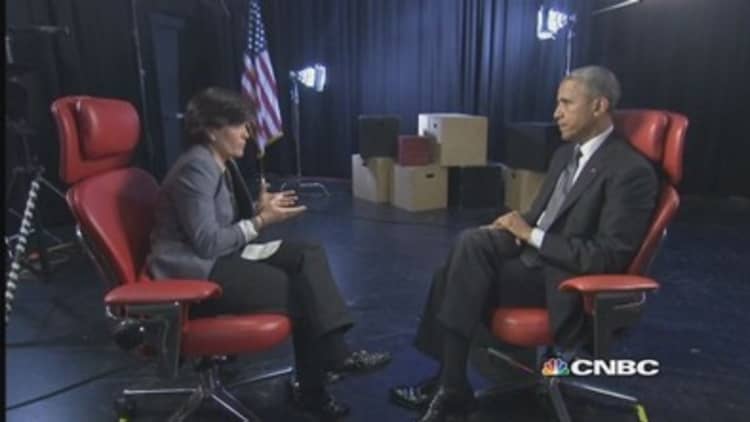NATO cyber security drills in Estonia this week are likely to mimic attacks launched by Islamic State extremists and Russia, one expert told CNBC.
Nearly 400 experts across 16 countries are taking part in this year's "Locked Shield" exercise organized by NATO in Tallin, Estonia, which neighbors Russia to the west. NATO, officially known as the North Atlantic Treaty Organization, is a military alliance of 28 independent countries that does not include Russia, China nor any countries of the Middle East except Turkey.
The drills this year will test threats coming through Windows 8 and 10 operating systems, among others, alongside elements of "active defence," according to a statement on the NATO's Cooperative Cyber Defence Centre of Excellence website.
A representative of the NATO cyber center said that the threat scenarios would be fictional, but based on realistic technologies and existing networks and attack methods. She told CNBC that for NATO'S purpose, the "nature of the aggressor was irrelevant."
However, one cyber security specialist outside of NATO told CNBC on Wednesday that simulated attacks would be aimed at keeping NATO allies abreast of sophisticated hacks by real-life adversaries.
"NATO will be focusing on threats you might see from Russia and, I imagine, on threats from groups that support the Islamic state or extreme Islamist movements," Robert Pritchard, associate fellow in cyber security at the Royal United Services Institute in the U.K., told CNBC.
Read MoreRussian hackers target Nato, military secrets
Pritchard noted that Russian hacking attacks had typically focused on espionage, quietly stealing valuable information, as opposed to "noisier" attacks that blocked activity, leaked information or took down websites.
Last October, a report by cyber security firm FireEye claimed a group of Russian hackers had targeted NATO in a long-running campaign to uncover military and government secrets. The group, known as APT28, had reportedly spied on NATO for at least seven years.
Pro-Russian groups in January also took responsibility for an . This followed hacks on the Ukrainian prime minister's offices that facilitated access to German, Belgium and Chinese embassies last summer.
Earlier this month, French President Francois Holland denounced attacks launched by hackers claiming to be supporters of the Islamic State, who took over channels and web pages run by French public broadcaster "TV5Monde."

Russia neighbors boost defence spend
Countries that border Russia have become increasing worried about outward aggression, following Moscow's annexation of Ukraine's Crimea region last year.
The president of Estonia, Toomas Hendrik Ilves, recently called for a permanent NATO presence in his country. In an interview with "The Telegraph" newspaper, he cited concerns over Russian military flights in the area and unannounced military exercises near the Estonian border.
Data from IHS Jane's Defence shows that Russia's neighbors, including Estonia, are bumping up their defence expenditure.
"The Baltics are all very, very worried and are already starting to rearm in a serious way," IHS Defence and Aviation Analyst Ben Moores told CNBC.
Read MoreCould Russia conflict 'move beyond Ukraine'?
Estonia is buying heavy, on-the-ground weaponry, including armoured carriers and self-propelled howitzer missile launchers, while Latvia is projected to spend $858 million annually on defence by 2025, marking an increase of nearly 9 percent from 2014.
IHS forecasts a 20 percent jump in defence spending in Finland—which borders Russia to the north west—over the next 10 years. Norway, meanwhile, is diverting defence spending towards "military capability" in the Arctic, which Moores said was entirely in response to Russian actions.
Moores said the spending increases were definitely in response to events in Ukraine.
"You don't buy long-range air defence equipment because you're going to do peace-keeping," he told CNBC.
Clarification: This story has been updated to reflect that the cyber drills this year will test threats coming through Windows 8 and 10 operating systems, among others.

